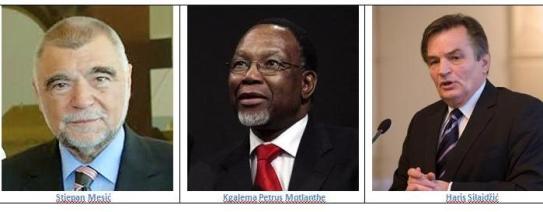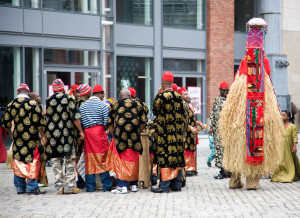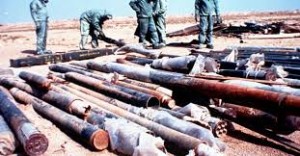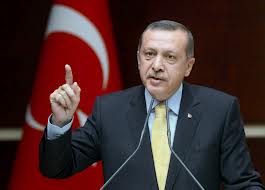As current world leaders converged in New York for the annual United Nations General Assembly this week, notable former presidents of different countries gathered in Seoul, South Korea along with religious and thought leaders to share ideas on the pursuit of enduring world peace in the face of threats to global peace and security by the regime in Pyongyang, North Korea, Middle East, and other flash points in the world.
How ironic it was to witness a global peace summit hosted in Seoul while Pyongyang to the North is interested in anything but peace with the South or the entire world for that matter.
How credible is South Korea to be an interlocutor for world peace and yet could not reconcile with her neighbor to the North.
Some speakers at the Seoul Global Peace Summit did not gloss over the biblical injunction of “removing the speck in your eyes before removing another person’s” and expressed the hope that one day both North and South Korea would unite as one nation.
At several speeches including the opening ceremony and the closing press conference, the Chairman of the civil society organization that sponsored the event, Mr. Man Han Lee claimed he had a solution to world peace. The challenge with Mr. Lee’s ideas for achieving global peace is that some of them sound very utopian and idealistic. For example, he floated a good idea about having an international statute that outlaws wars in the world. But, when pressed on how such a good idea could be achieve without the support of major world powers such as United States and Britain, he probably does not have a clear strategy to sell the idea to the international community and actualize it.

In a rather simplistic response, the leader of Heavenly Culture, World Peace, and Restoration of Light, sponsors of the event expressed his conviction that if journalists did their work more diligently in demanding peace, the world would experience better harmony.
The former president of Croatia, His Excellency Stjepan Mesić used the forum to explore sources of conflicts in the world and blamed the actions of some political leaders especially those who imposed their values on others without considering its acceptance or rejection. Without mentioning any country by name, some of his comments could be interpreted to be indirect references to the United States’ invasion of Iraq in 2003.
From Africa came former president of South Africa, Mr. Kgalema Motlanthe shared the apartheid experience as it occurred in South Africa during the minority racist regime before 1994, stressing that mutual understanding, respect for one another, elimination of all sorts of prejudice were critical in the quest for enduring peace in the world.
Similarly, His Excellency Haris Silajdžić, former Prime Minister of Bosnia and Herzegovina, started his address by raising the fact that religion can be a good instrument to dominate. Silajdžić’s presentation warned the audience about the consequences of war, highlighting the lessons learned in Kosovo and emphasized the need to educate future generation for peace.
Another speaker, His Holiness Swami Chidanand Saraswatiji Maharaj, President of Parmarth Niketan Ashram told attendees: “There are only two choices; either we can live in peace or in pieces. You can become better every day of bitter every day”. Maharaj wittedly exposed some of the pitfalls of peace and encouraged religious leaders to not only talk about the creator but address the issues challenging peace. For the hundreds of good-willed youth in attendance there is little doubt that these talks had an impact and if anything reinforced their willingness and passion for peace.

Some speakers addressed challenges peace may face. Singh Sahib Giani Gurbachan Singh Ji, Jathedar of the Akal Takht, told the audience that in an era where nations are increasingly interdependent, multinational and multi-religious, we are yet to learn to coexist. The speaker stressed that international migration and border movements contributed to increased tensions and intra-state conflicts.
The Summit was concluded on Friday 19 September 2014, by further instructive talks from political and religious leaders and followed by a symbolic peace walk. While the intentions of Mr. Lee may be a subject of controversy, speakers at the event and the enthusiasm of the audience, especially thousands of youth volunteers, to build sustainable peace is a driving force which should be encouraged. To quote H.E. Silajdžić: “No peace meeting goes in vain, this [Summit] is a small pebble in a big mosaic”.








